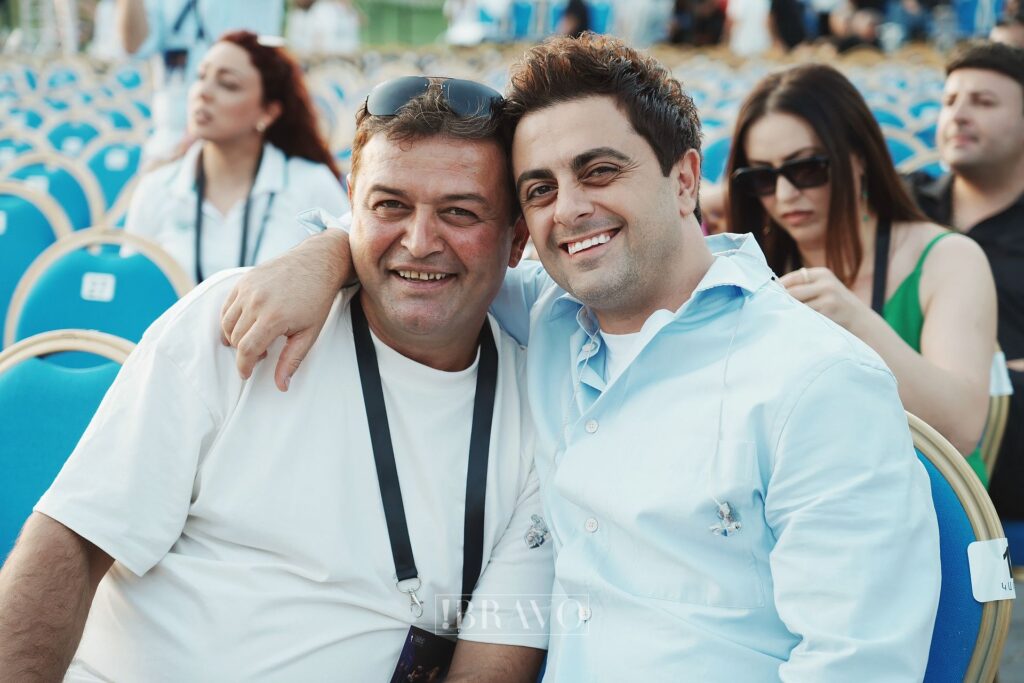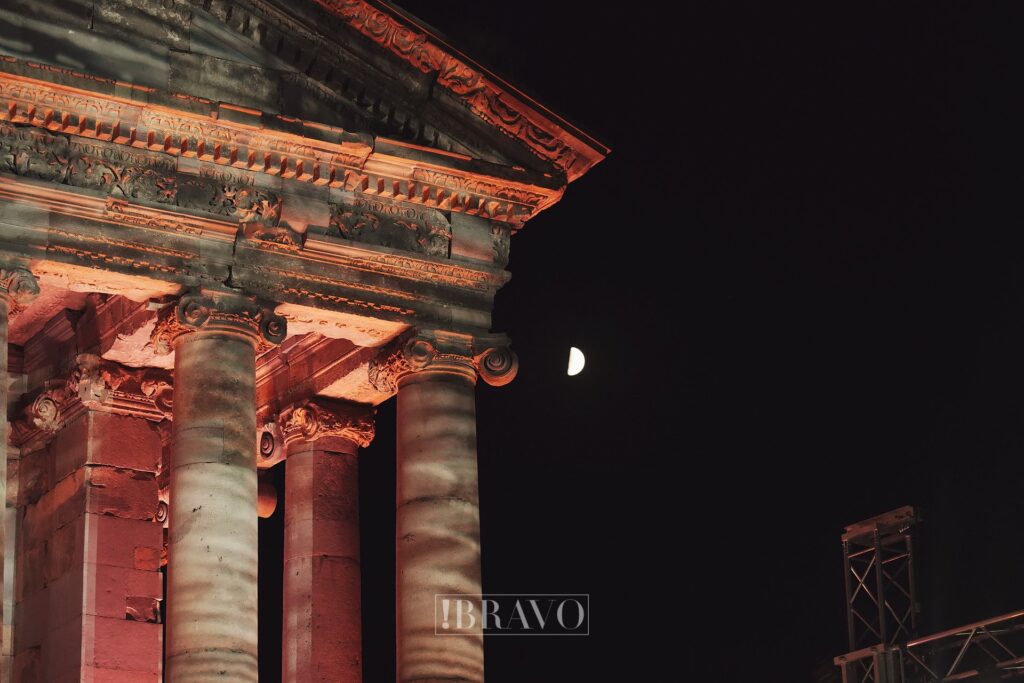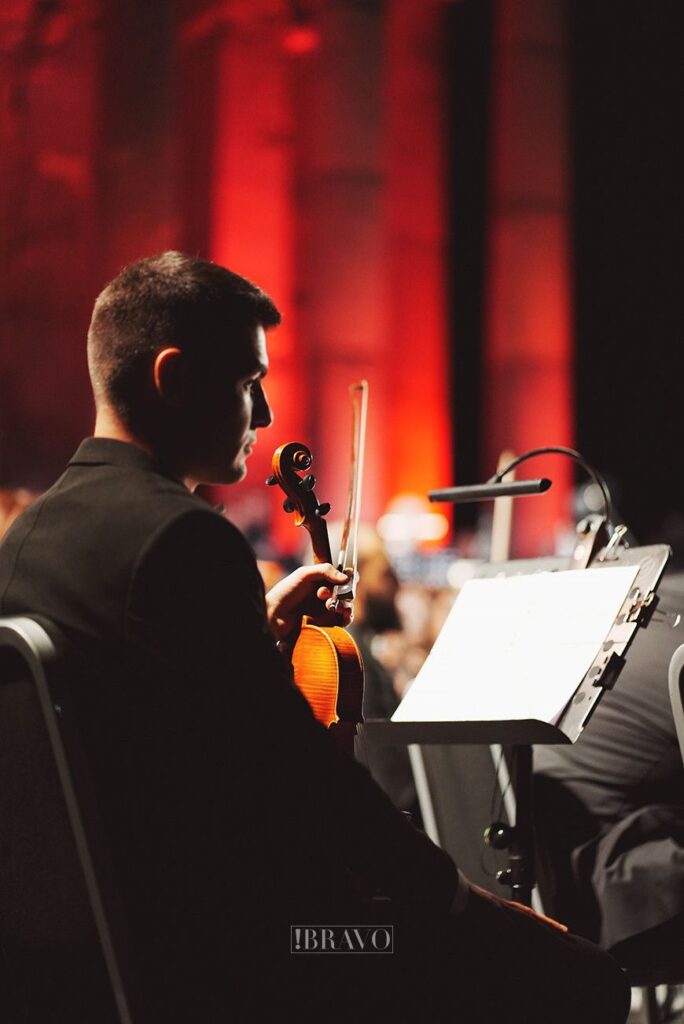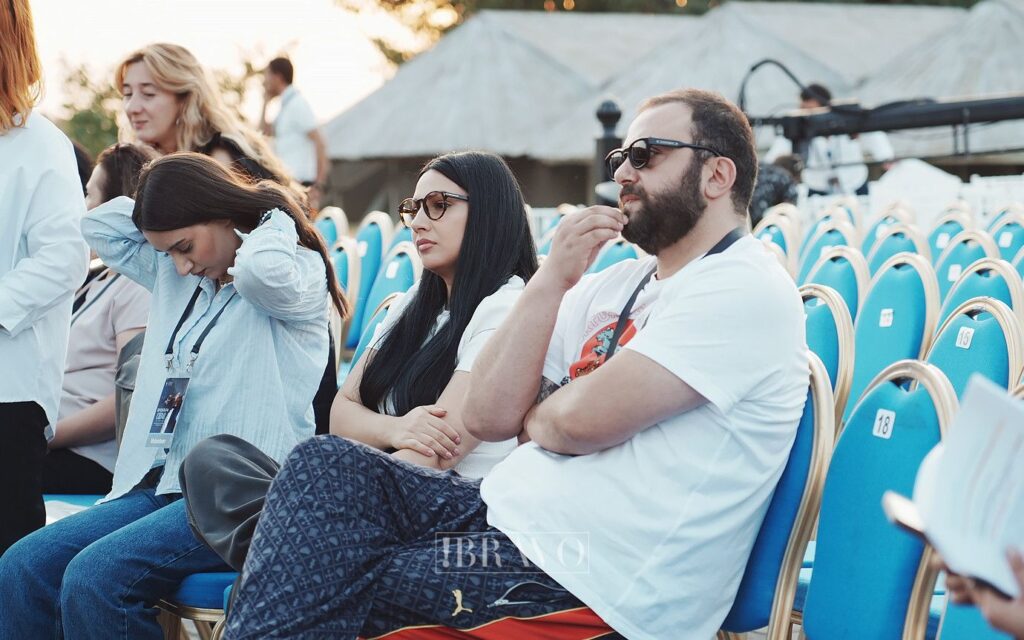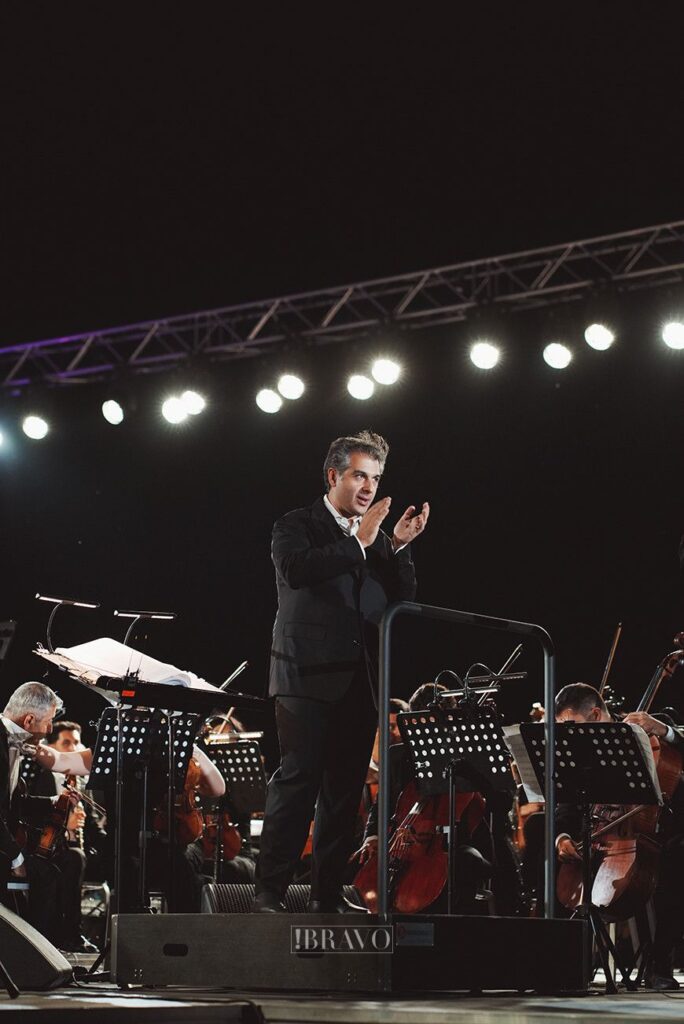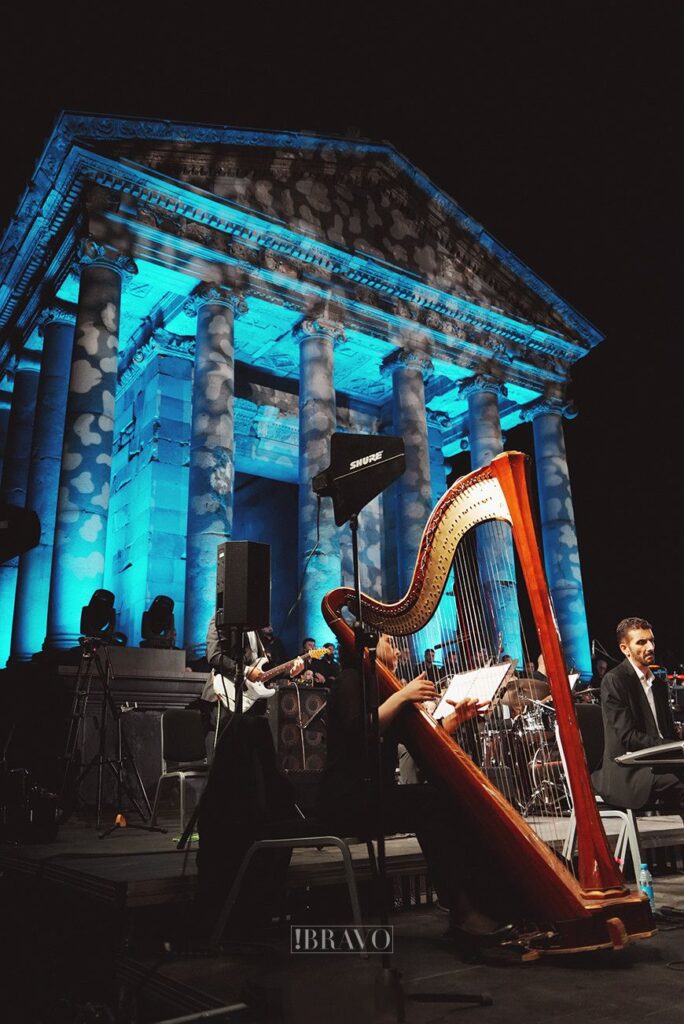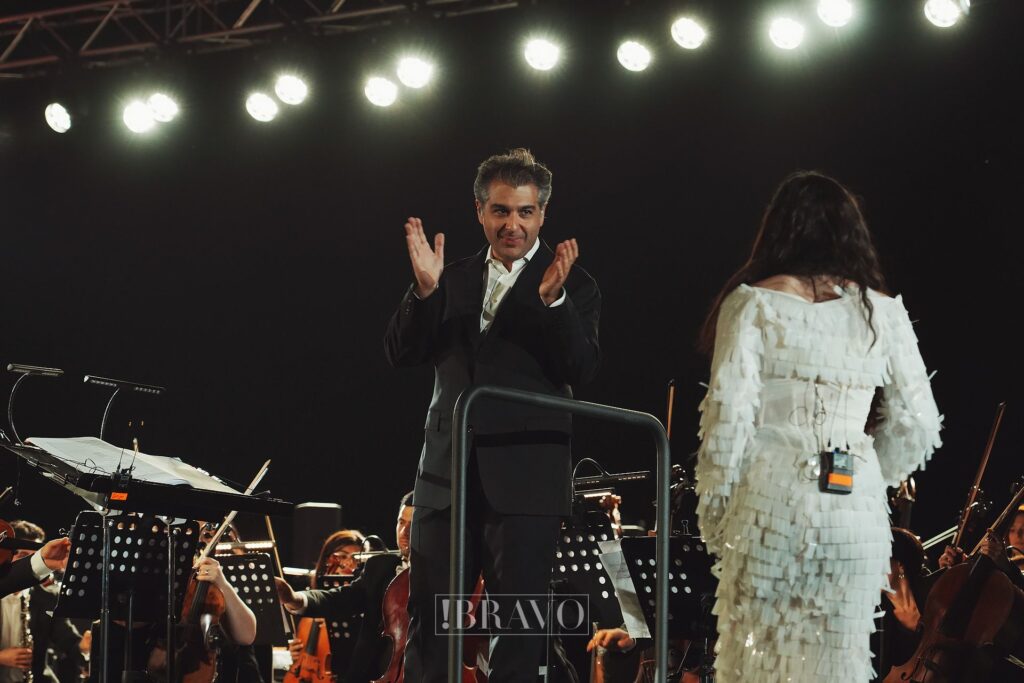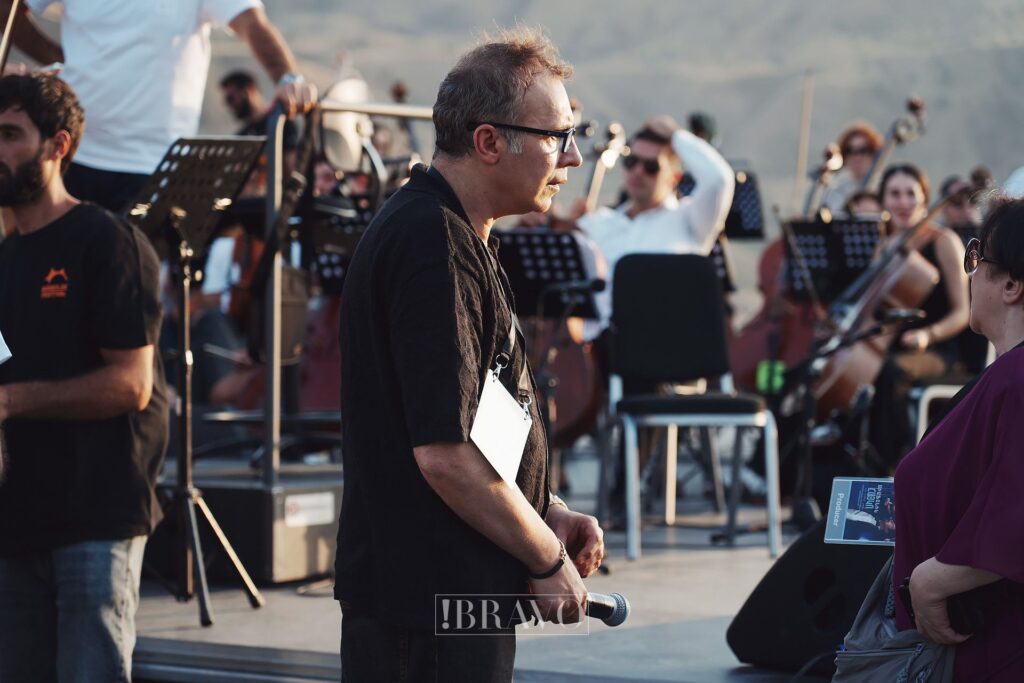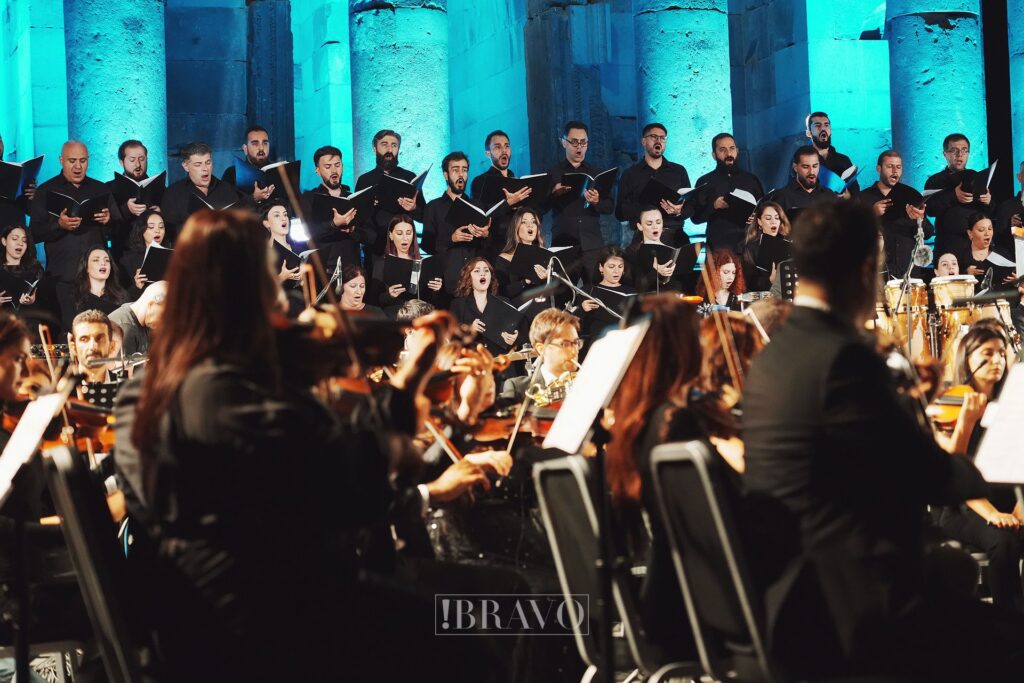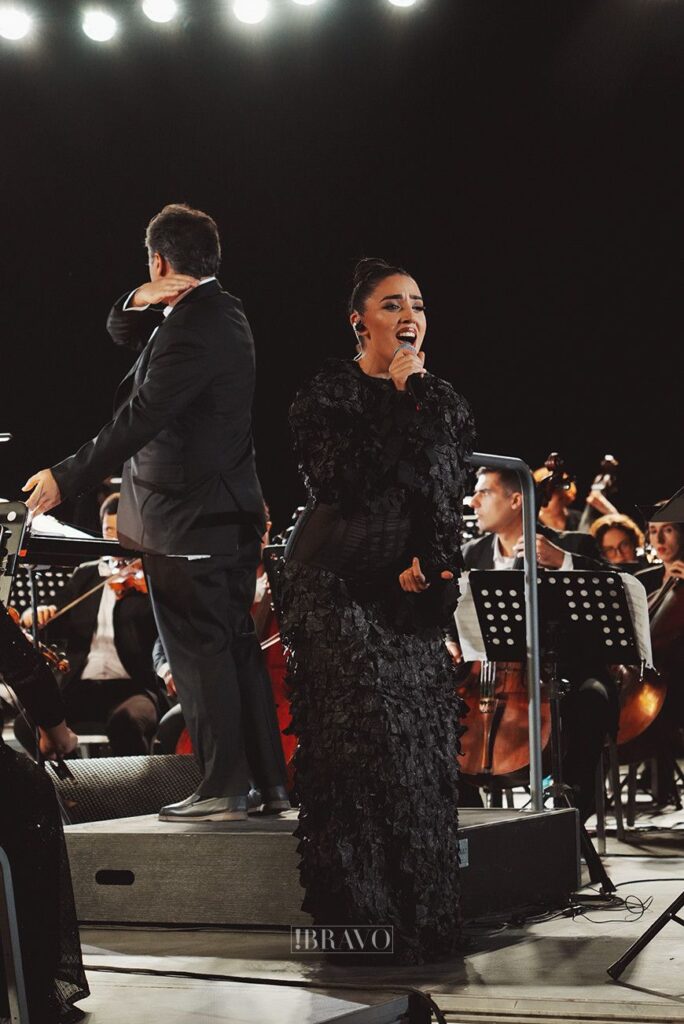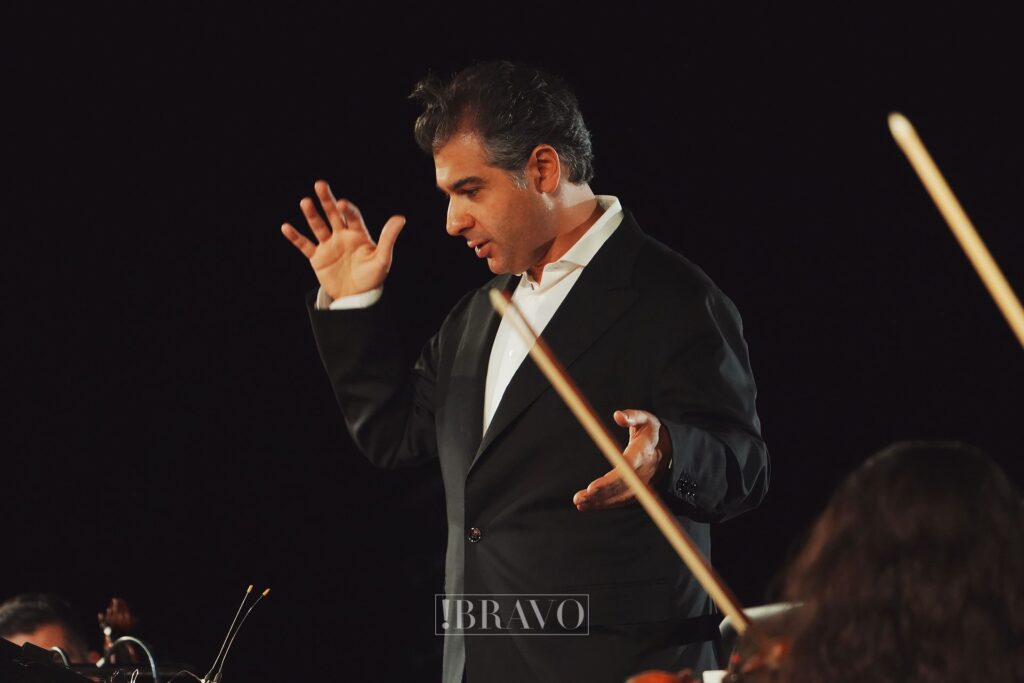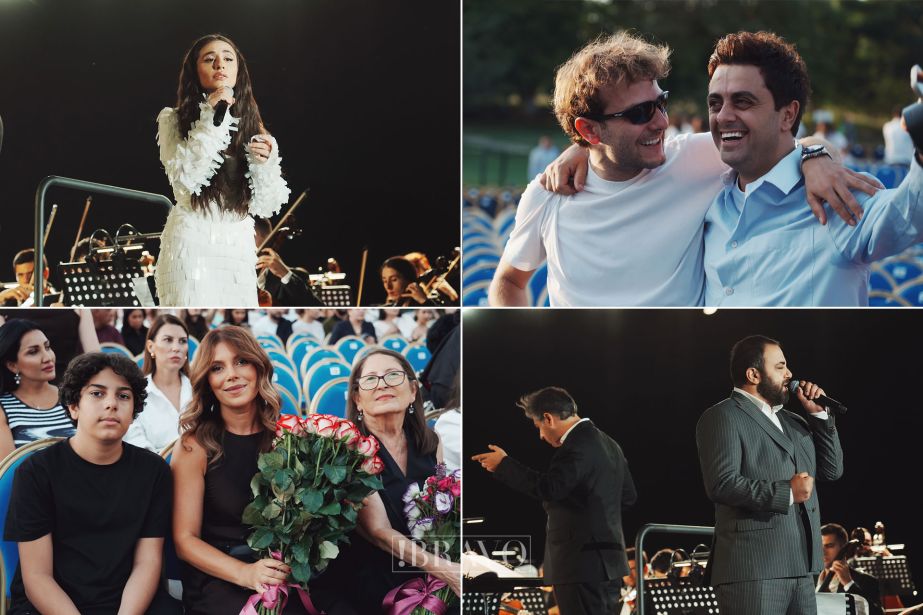
YEREVAN, September 2, 2025 — A special concert titled “Symphonic Hayko” took place under the open skies of Garni Temple, offering an emotional and elegant tribute to beloved composer and singer Hayko Hakobyan. The evening combined reverence, beauty, and the debut orchestral rendition of his iconic song “Havata.”
As attendees walked into the historic Garni Temple grounds, they were greeted by the familiar voice of Hayko, drawing them toward the performance space. The event commenced with a heartfelt reflection:
“What would Hayko say if he were here now? He might ask, ‘Are you sad I’m far away?’ We would answer: ‘Yes, we are sad, and we miss you.’ And he would say, ‘I am with you every time you hear one of my songs… whenever someone remembers me somewhere.’”
Singer Sona Rubenyans opened the concert with “Verev,” a song that holds deep personal significance. She revealed it wasn’t just a performance—it was emotional catharsis, as she had once hoped the song would be heard at her wedding. After stepping off the stage, she admitted she felt completely spent, overwhelmed by the artist’s presence she sensed even during rehearsals.
As the sun set over the ancient temple, the Armenian State Symphony Orchestra, conducted by Sergey Smbatyan, led the audience through a musical journey steeped in Hayko’s soundscapes. The stage featured a remarkable array of performers, including Arsen Safaryan, Liparit Avetisyan, Erik Karapetyan, Sona Rubenyans, Nerses Avetisyan, Bryunet, Masha Mnjoyan, Kamo and Seda Seyranyan, Srbukha Sargsyan, Khoren Levonyan, Roberto Kel Torres, Suzanna Melkonyan, Mario Stefano Pietrodarchi, Sevak Avanesyan, Anna Andryasova, and David Tadevosyan.
The most poignant moment came with the symphonic premiere of Hayko’s song “Havata.” Accompanying the orchestra, the song felt reborn—as director Hrach Keshishyan observed, the lyrics seemed to tell a new story tied to a deeper reality:
“After the artist passed away, this song is perceived completely differently. In conversations with friends, I’ve always been curious why Hayko wrote such lyrics—they seem to recount a different truth.”
The lyrics felt especially resonant in that moment:
“Believe, the heart that is full of love / will not cease after life… / The soul that is full of hope / you will feel it beside you after life… / There’s a part of you in everyone’s heart / where there are two—there you are.”
Audience members appeared united in the same sentiment: Hayko’s songs are timeless and deserve to be passed down to new generations. Even decades later, when someone unexpectedly hears these melodies—the connection remains. It endures beyond time and beyond finality.
